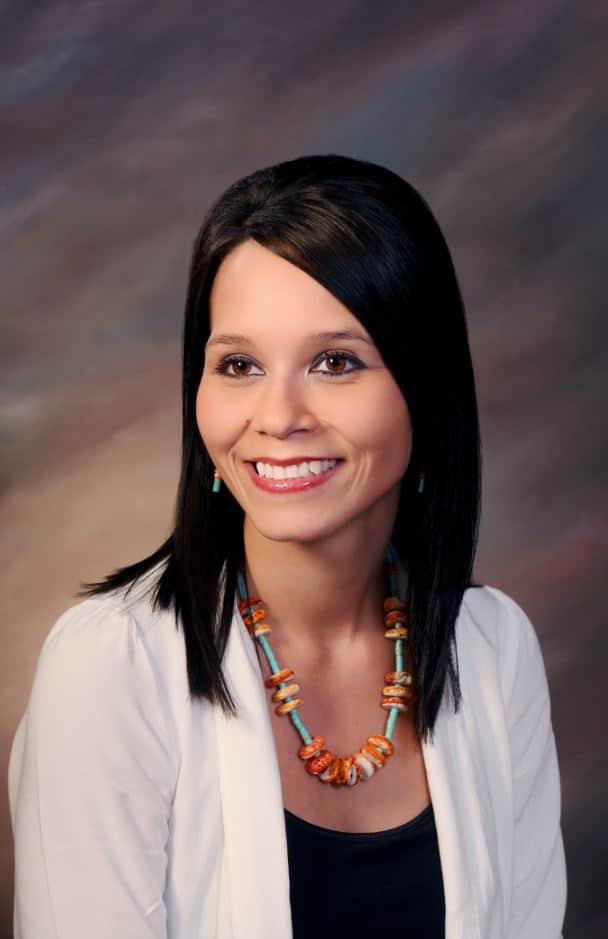 With two clinics and 12 different departments, the Citizen Potawatomi Health Services offers a variety of facilities and programs to Native Americans and the tribe’s employees. While the CPN Health Clinics are the most visible manifestation of these offerings, programs like Behavioral Health play a vital role in the local health community. To learn more about this program, the Hownikan spoke with Anadarko, Oklahoma native and Kiowa-tribal member Glenna Stumblingbear-Riddle, Ph.D.
With two clinics and 12 different departments, the Citizen Potawatomi Health Services offers a variety of facilities and programs to Native Americans and the tribe’s employees. While the CPN Health Clinics are the most visible manifestation of these offerings, programs like Behavioral Health play a vital role in the local health community. To learn more about this program, the Hownikan spoke with Anadarko, Oklahoma native and Kiowa-tribal member Glenna Stumblingbear-Riddle, Ph.D.
Dr. Stumblingbear-Riddle has served as the Behavioral Health Coordinator for the CPN since June 2013 and is a licensed psychologist.
Why did you go into the Behavioral Health field?
My grandfather was an avid reader. We had deep conversations about current events, social justice issues, and common issues among American Indians. Also, while growing up in a predominantly American Indian town, I was well aware of the health disparities that existed among the American Indian population. I became very passionate about these issues and felt strongly about doing something proactive about it. After attending an outreach seminar that worked to recruit American Indians into the healthcare field I decided I would pursue psychology. I am very thankful to have the privilege to work with the Citizen Potawatomi Nation to help reduce the health disparities and help provide the best quality care to patients.
Where are your degrees from and what are they in?
I have a Bachelors of Science Degree where I majored in Psychology with a minor in Liberal Arts from the University of Science and Arts of Oklahoma. I hold both a Master of Science Degree in Educational Psychology and a Ph.D. in Counseling Psychology from Oklahoma State University.
Can you describe the services provided by the Behavioral Health Program?
The Behavioral Health clinic provides outpatient services to CPN members and members of other federally recognized tribes. We conduct individual therapy, group therapy, marital and couples therapy, substance use assessment and treatment, medication management, smoking cessation, and outreach for CPN departments and community.
How does working at a tribal-run clinic differ from that of a private practice or a state-run facility?
Working at a tribal clinic differs greatly from working in a private practice or state-run facility. We are fortunate to have the support of the tribe to offer the types of programs and services that are needed to serve patients. We are able to work closely with medical staff and other health service departments, which helps benefit patients. Specifically, this benefits the patients by being able to help them address all components of health and enhance physical, mental, and emotional well-being.
Another key difference in working in a tribal clinic is that we are able to implement culturally relevant, sensitive, and competent services based on the patient’s level or interest in his or her culture. An example of this would be implementing smudging and dream catcher making with patients in a therapeutic manner. Research has demonstrated the importance and significance of offering traditional healing practices and cultural activities among American Indians. However, in private practice and state-run facilities these types of services are not commonly offered.
Are there certain challenges you face serving the CPN Health Clinic Patients that you normally wouldn’t deal with in a private setting or in a state-run facility?
The challenges we encounter are similar to challenges that other facilities face. Unfortunately, there is still stigma associated with behavioral health services, which limits some patients from seeking services that they need. We hope to continue to devise strategies to help reduce stigma and work to resolve other issues that limit a patient’s ability to seek services.
How many staff currently serves in Behavioral Health?
We are currently in transition and in the process of bringing on new staff members. At full capacity we will have a staff of two licensed psychologists, a licensed psychiatrist, two licensed alcohol and drug counselors, a licensed behavioral health counselor, a full-time administrative assistant, and a part-time receptionist.
If you would like to learn more about the offerings of the behavioral health services that include counseling, substance abuse counseling, smoking cessation classes and marriage counseling, please contact the CPN Health Services at (405)273-5236.
